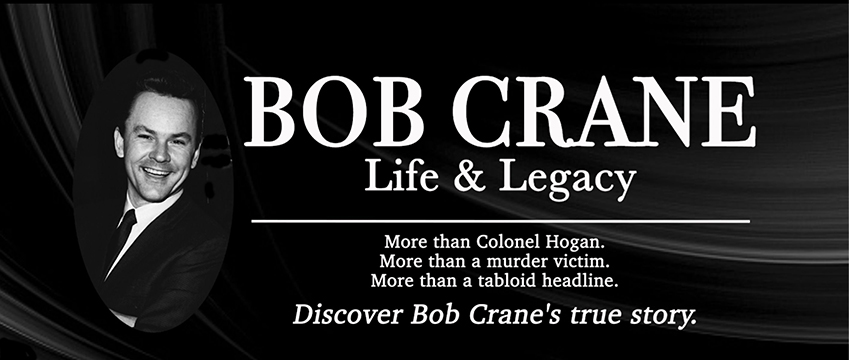
When Bob Crane was in school, he was one of the most popular kids around. A drummer in his high school and community jazz bands, a quick wit, and a comedian, Bob was also nice to everybody. Further, he loved making people laugh. His friends remember him for his sunny personality and always being the first with a joke or a gag.
As far back as junior high school, Bob was doing different impersonations of people. One of his classmates remembered he could impersonate one of their school teachers perfectly. The teacher had a slight speech impediment, and Bob's classmate criticized him for making fun of her. While he hadn't seen it as ridiculing the teacher, but instead, just having some fun, Bob also didn't brush it off, either. He took the criticism to heart and felt genuinely bad about it, never making fun of the teacher again. He would later say to a group of students at LA College to always be mindful of what they say on air - if you think something is a little off-color, then chances are, others will think so, too.
This is just one example of countless stories of Bob's sensitivity, and from it, was born what would become the cornerstone of his humor: that of self-depreciating humor. By making himself the number-one target of his razor-sharp wit, Bob could then turn that wit onto others - such as celebrities and paying advertisers - in such a way as to not offend, but rather, take part in his style of humor.
Bob Crane was also driven - a word used by many who knew him from all walks of his life. He was continually driving himself to another career goal. Moving from the "zany" world of radio into the field of acting, Bob began to hone his acting talents. When watching early episodes of Hogan's Heroes, the character of Colonel Hogan is a bit more campy, someone who is less serious and more fun. Later on, however, the character begins to develop a more profound leadership quality, which Bob worked very hard to achieve.
In the article posted here (from TV Guide - August 3, 1968), Bob talks about how he transformed Colonel Hogan from the young, wise-cracking POW in season one into the more mature, serious officer and group leader from season two through the series' end. Bob Crane molds Hogan into a larger-than-life hero who realizes the dangers of war yet thrives on keeping the upper hand at the expense of Klink and the Nazis, but who does so in the classic style of the legendary John Wayne.
Click on each image below and then again in the new window for easier reading.





